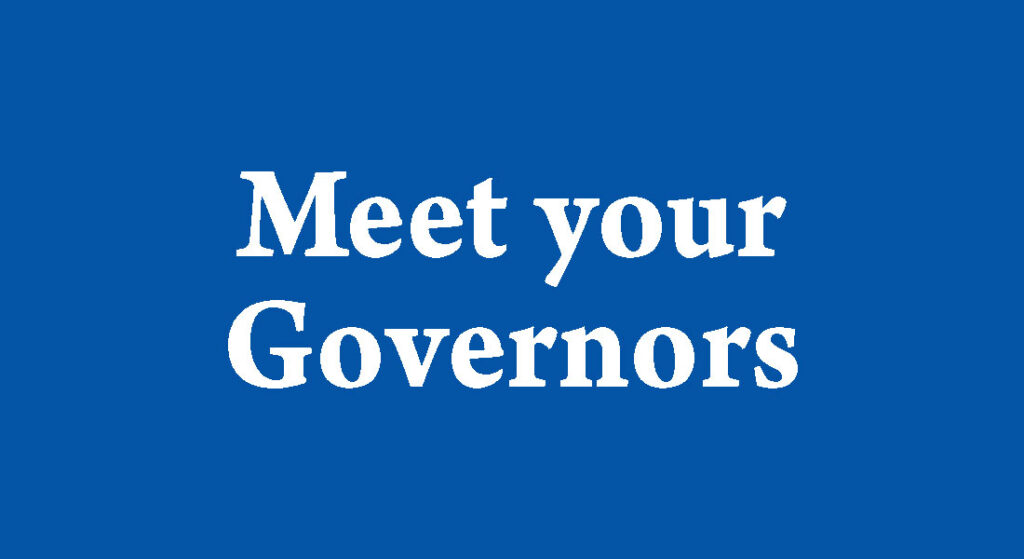Turning small clubs into big families
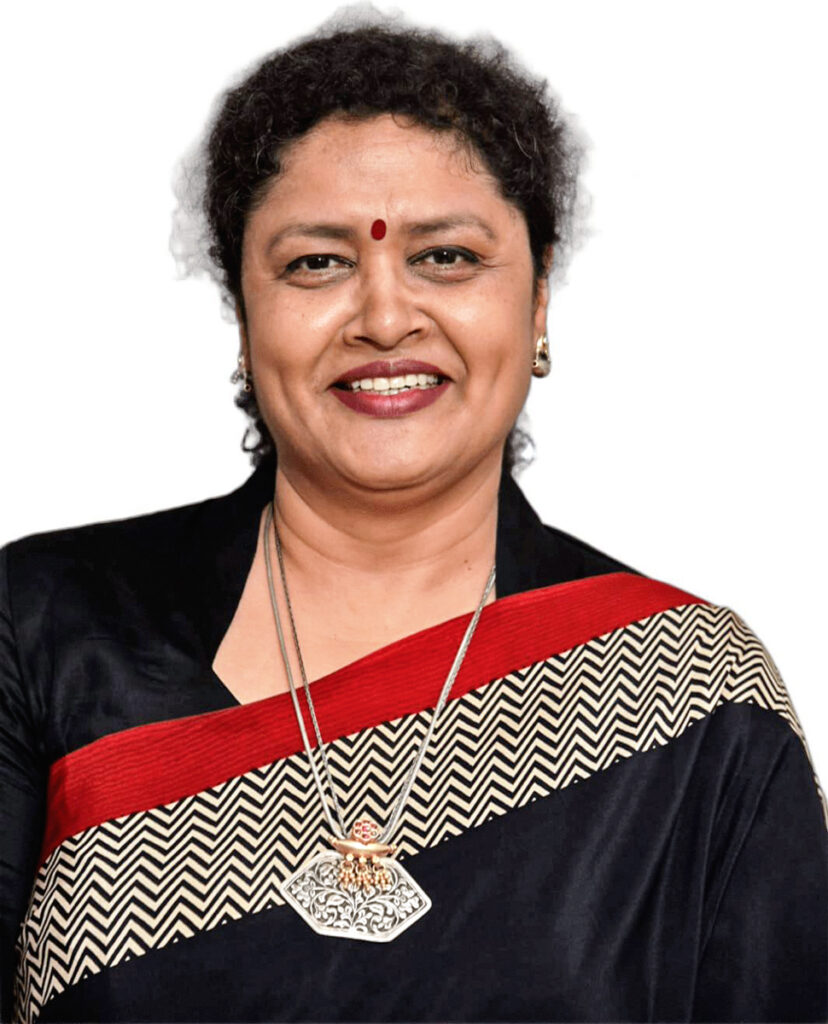
Soft skills trainer, RC Kota, RID 3056
Introduced to Rotary in 2000 through her husband’s aunt, Pragya Mehta became a Rotarian in 2009 and served as club president in 2018. What drew her to Rotary was members, who were “ready to include me and who participated with positivity and enthusiasm.”
Her membership goal is “not defined by numbers.” She aims to strengthen smaller clubs with only 10 members and help them grow to 25. She suggests dedicating a short segment in club meetings to appreciate a member’s recent contribution, hobby, or personal achievement, and sending a friendly ‘You were missed’ message to absentees. In her membership seminar, she plans to include an hour of open interaction to understand members’ needs and address their grievances.
Pragya is also advocating for more women in Rotary. “Until a woman becomes part of your club , you’re overlooking half of its true potential.” She is encouraging senior clubs to mentor Rotaract and Interact clubs.
Her TRF goal is to achieve the status of ‘100 percent giving clubs’. As of now, 150 members have contributed ₹1,100 each to TRF, and the current DDF stands at $9,000, “an indicator that more contributions are needed.”
Major projects this year include thalassemia awareness drives, TB eradication initiatives, and Anna Sadhana, a campaign to prevent food wastage.
Diabetes centre in Salem
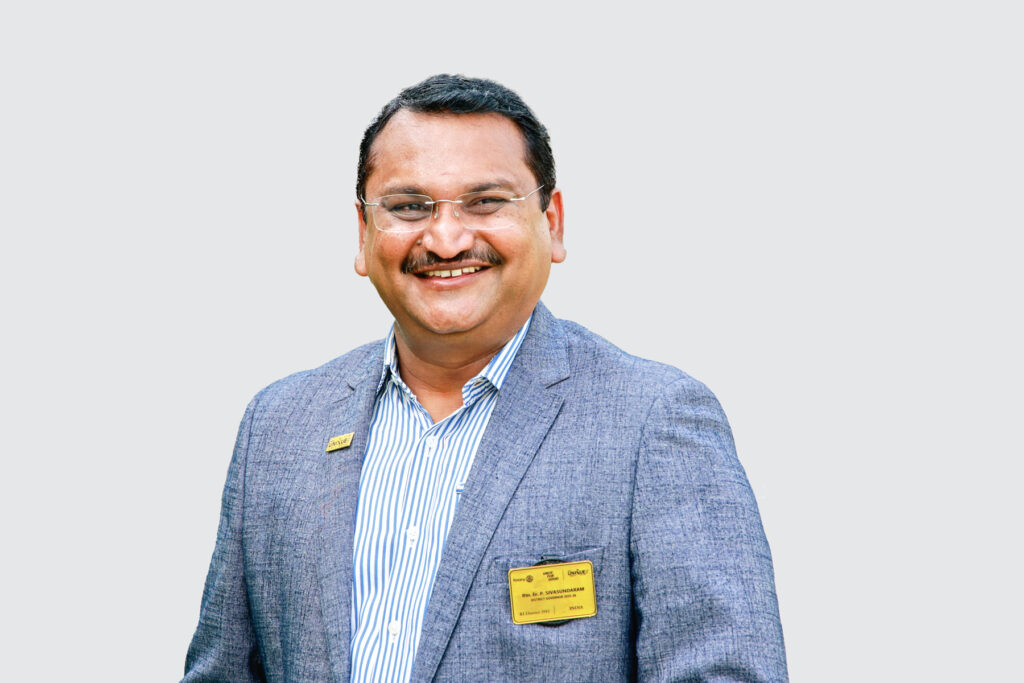
Textile manufacturer, RC Komarapalayam, RID 2982
He joined Rotary in 2002–03, introduced by PDG A K Natesan, and has stayed for its friendship, fellowship, networking, and service. As club president in 2012–13, he learned the value of permanent projects, and recalls building public toilets still in use today.
This year, the district’s 23 assistant governors will each form a new club, aiming to establish 23 new clubs and induct over 500 new members. Recognition ranges from certificates for sponsoring one new member, to PHF honour for those bringing in 25 or more. On member retention, he says, “remind Rotarians what Rotary has given them… personal satisfaction, meaningful friendships, trusted business associates or experiences that have touched and transformed their lives.”.
The district has four all-women clubs and 200-plus women members.
Having gained fundraising expertise as District Foundation chair (2017–20), he applied it to execute a ₹70 lakh-CSR project with Raasi Sweets to set up a diabetes centre in Salem. Other initiatives include setting up a multi-utility centre in Sangagiri with free meals, vocational training and a dialysis unit; MoUs with six hospitals for medical camps and subsidised treatment. An artificial limb camp is planned for Oct–Nov 2025.
This year his district hopes to charter six new Rotaract clubs and six new Interact clubs.
Partnering with Inner Wheel for growth
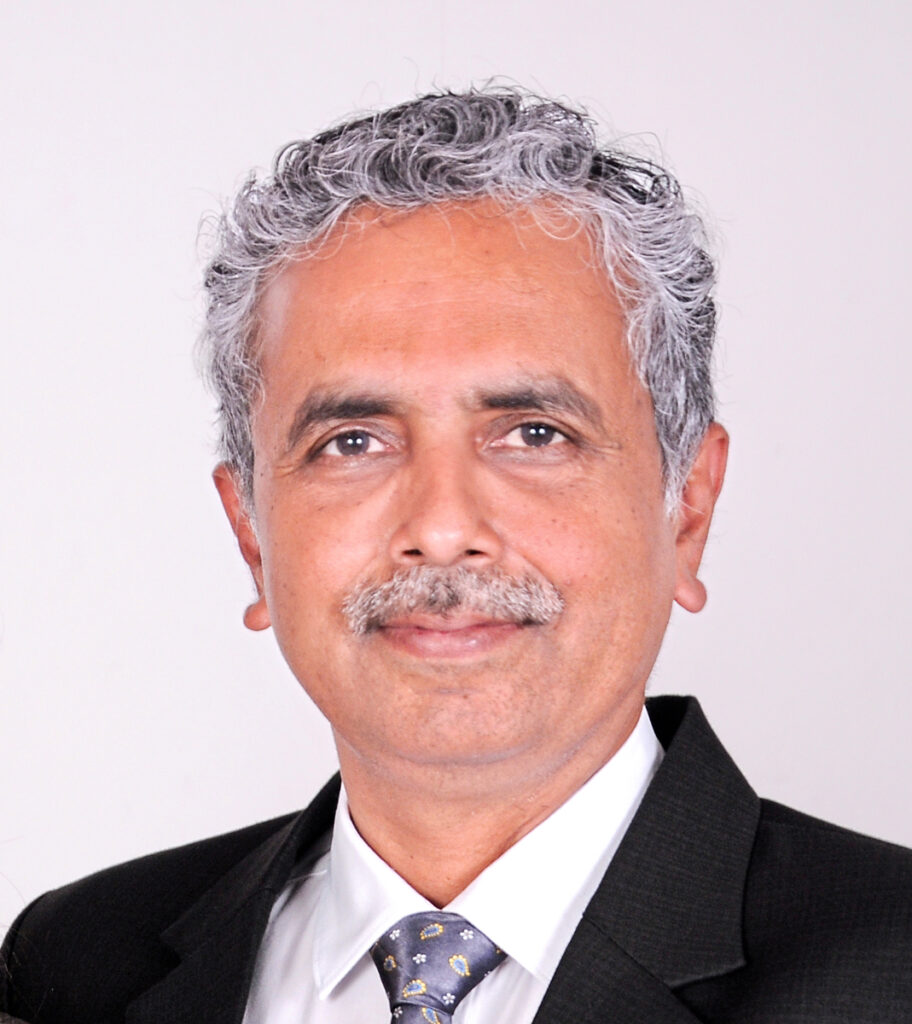
Architect, RC Visnagar, RID 3055
A former Rotaractor, Nigamkumar Chaudhri was introduced to Rotary through his family. This year, to boost membership, he plans to start 15 new clubs and achieve a net growth of 400 members. “Before enroling, ask prospective members what they know about Rotary. Invite them to service projects, fellowship events, and club meetings so that they can understand the club closely. This will help in better membership retention,” he says.
He encourages sharing information on fellowship programmes, Rotary Youth Exchange, and family exchange opportunities to help members appreciate Rotary’s global reach.
Chaudhri is also focused on improving gender diversity, aiming to raise women’s membership in the district from 14 per cent to 20 per cent. To achieve this, clubs are partnering with Inner Wheel clubs to introduce their members to Rotary and promote the idea of dual membership.
The district’s target is increasing contribution from $25,000 to $400,000 for TRF under the Each Rotarian a Donor Rotarian initiative. The district has partnered with ONGC and Bank of India to fund cervical cancer vaccinations, vocational centres, artificial limb distribution and smart glasses for the visually-impaired.
Major projects for the year include large-scale cancer awareness and anti-drugs campaigns to reach one lakh students in a single day.
This DG is urging Rotary clubs to start three Interact clubs and two Rotaract clubs each. A one-day Interact conference is also planned to energise young members and give them a bigger picture of Rotary.
Waiving levies to welcome women
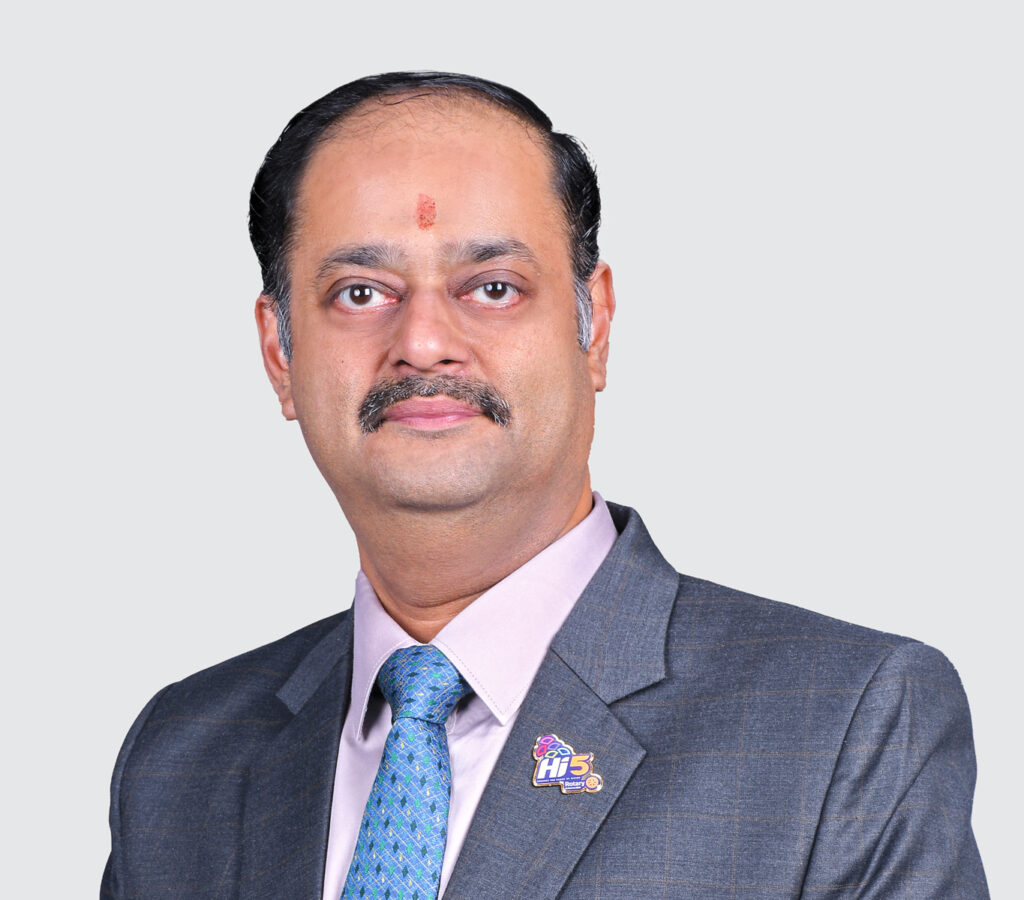
Chartered accountant, RC Coimbatore Spectrum, RID 3206
When DG Chella K Raghavendran joined the Rotary Club of Chennai Towers in May 2002, his biggest inspiration was his brother Chella K Srinivasan, “a Rotarian since 1986, who never missed a single club meeting” and his uncle, PDG C N Gangadaran, who was a well-known Rotary leader.
Leading one of the recently bifurcated districts, Raghavendran’s focus is on adding 20 new clubs, and around 650 new Rotarians this year. His advice to club presidents is “give members a clear orientation, help them find their ‘Rotary Moment,’ and keep them engaged through events, fellowships and action groups.”
He switched to RC Coimbatore in 2004. As RID 3206 bridges Tamil Nadu and Kerala, to boost inclusivity, all communication is in English. To improve gender diversity (currently at eight per cent), the district will waive certain levies for women joining Rotary in 2025–26.
The district has set an ambitious TRF-giving target of $1.5 million, with per capita goals of $100 for the Annual Fund and $30 for PolioPlus. “The biggest challenge is mindset. TRF contributions are the best way to give back to the community.”
Service projects during his tenure include empowering girls, caring for the elderly and the differently-abled and preventing substance abuse among youth. Big goals include 50 dialysis machines, 50 smart classrooms, 500 kW solar installations in underserved areas, and one million free meals.






